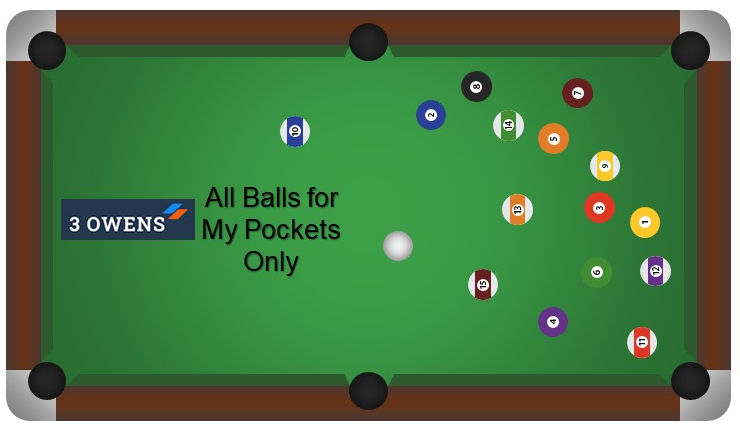Why My Pocket, Not Yours, Is the Better Sales Strategy for a Company


Introduction
Sales success isn’t just about numbers—relationships, trust, and long-term growth. Many traditional sales approaches focus on pushing products and closing deals, often prioritizing the seller’s immediate gain over the prospect’s best interests. While these methods may generate short-term results, they fail to foster sustainable loyalty and repeat business.
The My Pocket, Not Yours sales strategy presents a customer-first approach that prioritizes ethical selling, genuine engagement, and value-driven interactions. Instead of focusing on personal commissions or immediate revenue, this strategy emphasizes helping the customer succeed, leading to stronger relationships, increased trust, and long-term profitability.
By integrating the PECC framework—Prospect, Engage, Consult, Close—companies create a structured approach to sales that ensures every step of the process aligns with customer success. When a company embraces My Pocket, Not Yours, it builds a culture of integrity, empowerment, and repeat business, making it the superior strategy for sustainable growth.
Trust as the Foundation of Long-Term Success
One of My Pocket, Not Yours’ most significant advantages is its ability to build trust. Unlike aggressive sales tactics prioritizing closing a deal at any cost, this strategy fosters credibility by ensuring prospects receive honest recommendations tailored to their needs.
- Customers Buy from Salespeople They Trust
Prospects are far more likely to return if they believe their salesperson genuinely cares about their success. Trust leads to repeat purchases, referrals, and strong brand loyalty, all of which drive sustainable revenue. - Authenticity Strengthens Competitive Advantage
Trust is a powerful differentiator in industries flooded with competitors. A company that builds long-term relationships based on ethical selling will outperform competitors who rely on transactional sales tactics. - Eliminating Buyer’s Remorse
Customers who feel pressured into purchasing often regret their decision, leading to dissatisfaction and potential returns. The My Pocket, Not Yours approach ensures that every transaction is a confident decision, reducing complaints and cancellations.
PECC: A Structured Approach to Value-Based Selling
The PECC framework—Prospect, Engage, Consult, Close—reinforces the principles of My Pocket, Not Yours by ensuring that sales interactions remain customer-centric rather than profit-driven.
Prospect: Finding the Right Customers
Rather than pursuing any possible lead, companies following this strategy prioritize quality over quantity, focusing on customers who genuinely benefit from their offerings. This saves time and resources while increasing conversion rates.
Engage: Building Meaningful Relationships
Instead of rushing to make a sale, engagement in the My Pocket, Not Yours method emphasizes active listening, relationship-building, and genuine connections. Customers respond better to salespeople who understand their pain points and goals rather than simply pushing a product.
Consult: Providing Real Value
Unlike generic pitches used in traditional sales models, this strategy positions salespeople as trusted advisors. By consulting rather than persuading, reps offer customized solutions that align with the customer’s needs, ensuring satisfaction and repeat business.
Close: Creating Win-Win Outcomes
Closing is more than securing a sale—it’s about establishing partnerships that benefit both the company and the customer. With My Pocket, Not Yours, every deal reinforces trust, transparency, and mutual success, increasing retention and loyalty.
The Financial Benefits of Ethical Selling
Many companies assume that ethical sales strategies slow down revenue growth. My Pocket, Not Yours drives higher profitability through repeat business and customer referrals.
- Higher Lifetime Customer Value (LCV)
A loyal customer spends more over time than a one-time buyer. By prioritizing long-term relationships, companies increase their LCV and generate consistent revenue streams. - Stronger Brand Reputation
Businesses known for ethical selling gain positive customer perceptions, leading to higher retention rates and word-of-mouth recommendations. - Reduced Customer Acquisition Costs
It costs more to acquire a new customer than to retain an existing one. By building relationships, companies lower marketing expenses while increasing sales volume.
Conclusion: The Future of Sales Is Customer-Centric
Companies that adopt the My Pocket, Not Yours strategy position themselves for long-term success. Trust, ethical selling, and customer empowerment are no longer optional but essential for building sustainable business growth.
By prioritizing value over profit, embracing the PECC framework, and reinforcing ownership within sales teams, businesses can generate higher revenue, strengthen brand loyalty, and create lasting customer relationships.
In today’s competitive market, a company that truly understands its customers—and commits to their success—will consistently outperform one that only focuses on its bottom line.







